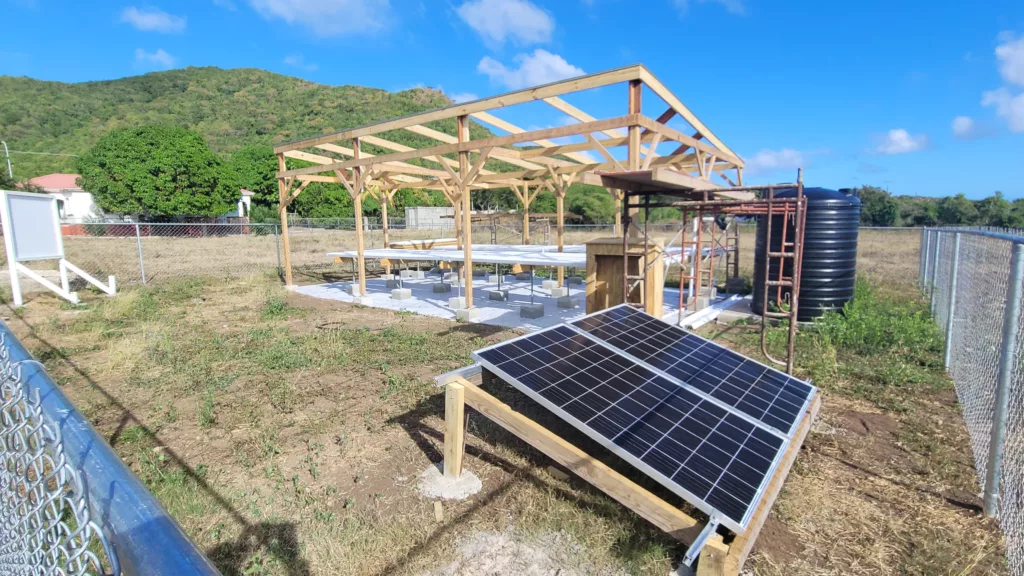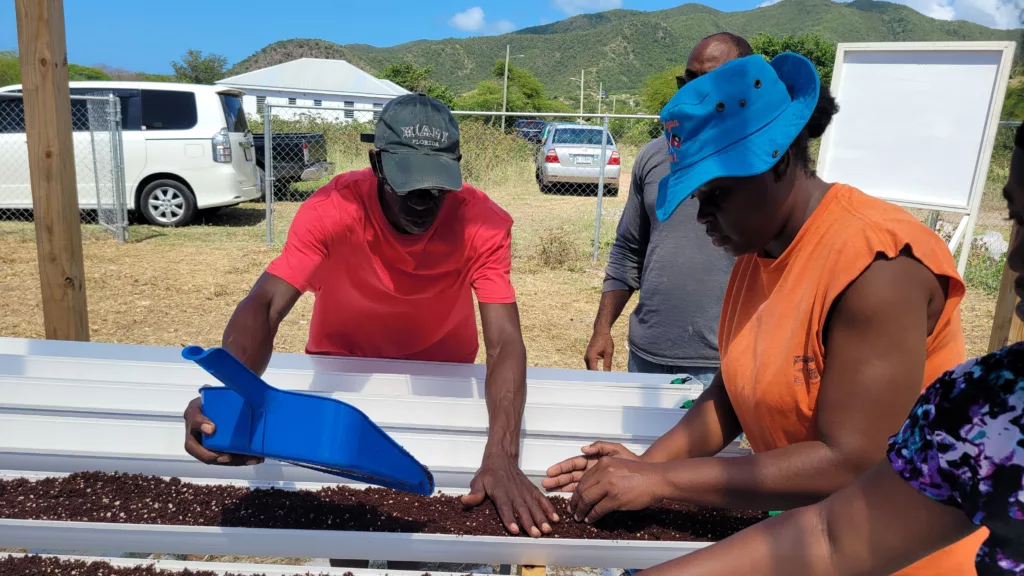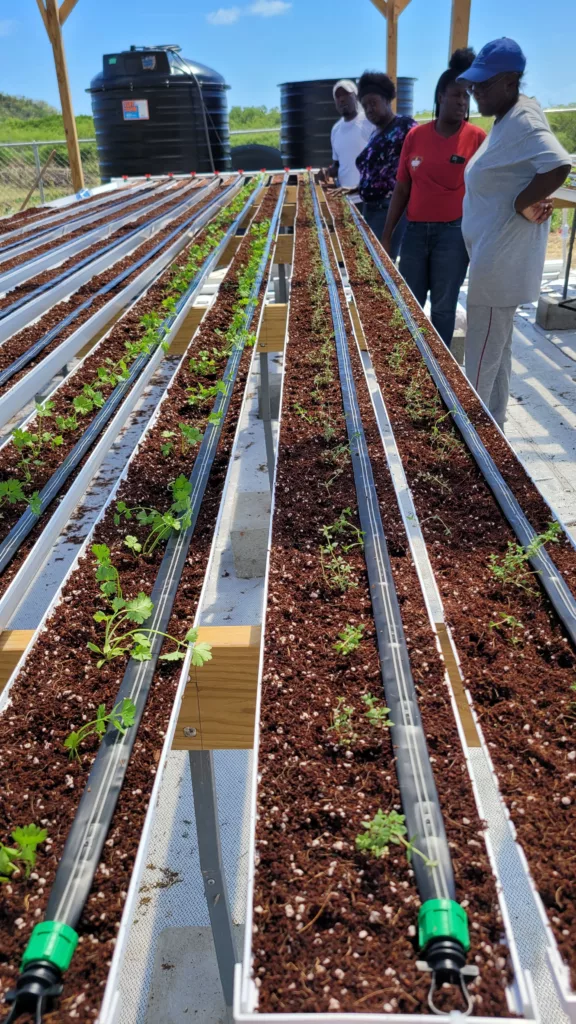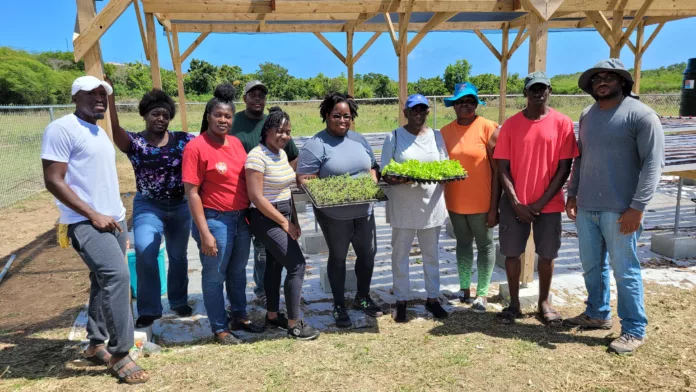
By S Natalya Lawrence, GEF Small Grants Programme – UNDP
It was a sunny morning and a scenic drive through the southwestern countryside. The final destination was a plot of land in the idyllic village of Old Road.
The unassuming three acres of land is owned by the Old Road Seventh Day Adventist (ORSDA) Church. It lay covered in secondary vegetation, locally known as cassie, but would stir to life after several years of lying inactive.
The members within the ORSDA community service group had big plans for sustainable use of the land. The group would embark on a project funded by the GEF Small Grants Programme – UNDP entitled, “The Introduction of Climate Smart Agriculture through Hydroponics Production to Strengthen Community Development”.
Through this project they would produce nutritious herbs and leafy green crops, which would support the church’s mission to reach out tangibly to the community.



With the land newly fenced and some cassie cleared away, the assembly of the production site was underway. Projects are never implemented without challenges, though, and in the very early stages of the project, the team had to schedule work in between tropical weather systems, work around material shortages, and finalise a shift in the ultimate design of the system.
The end result was a more affordable and efficient system that utilises even less water than conventional hydroponic systems. This is a significant boon for a project implemented in a water-scarce country.
While a church group may not necessarily be considered as project implementers in the field of climate-smart agriculture, the men and women of this Faith-based Organisation (FBO) took up this challenge with zeal.
Armed with a strong complement of technical experts, a team from the church community, as well as nearby farmers, were mentored and trained to implement innovative, hydroponic farming practices that utilise less water than conventional hydroponic systems.
Further, the team gained entrepreneurial training to support future income generation. Agricultural specialists that mentored the team included personnel from the Ministry of Foreign Affairs, Agriculture, Trade and Barbuda Affairs, Inter-American Institute for Cooperation on Agriculture (IICA), the Caribbean Agricultural Research and Development Institute (CARDI), and Aquatic Solutions. In the upcoming months, the implementing team will learn and implement good agricultural practices and practice soil management and conservation.
So far, the team has produced herbs such as thyme and parsley, and have successfully grown larger crops, such as lettuce. Some crops produced will be sold to nearby hotels and the income generated will support maintenance of the system and the church’s community outreach programme. Some of the food grown will be directly distributed to persons in need through the church’s active food programme.
Already, there have been positive outcomes derived from the project. Thus far, 15 men and women have received training and mentorship from the agricultural experts, with benefits expanding to the wider church and village communities.
Cross-training, and income-generation mechanisms have been put in place to ensure the sustainability of the activities past project implementation. A plan has been established to dismantle and store the system during severe weather events.
Also, because of the shift in design of the system and the decreased cost, the team was able to procure and install renewable energy technology to power the site – something that was originally planned but had been eliminated due to costs.
The project, which is scheduled to be completed by the end of 2024, aligns with several national and international environmental and agricultural targets, and helps the country to achieve several Sustainable Development Goals, particularly Goal 2 – Zero Hunger: End hunger, achieve food security and improved nutrition, and promote sustainable agriculture, Goal 3 – Good Health and Well-being: Ensure healthy lives and promote well-being for all at all ages, and Goal 12 – Responsible Consumption and Production: Ensure sustainable consumption and production patterns.
As project implementation continues, we hope that other civil society organisations with similar dreams can be mentored by the ORSDA. This project falls under the Sustainable Agriculture and Fisheries, and Food Security Strategic Initiative of the GEF Small Grants Programme – UNDP.


